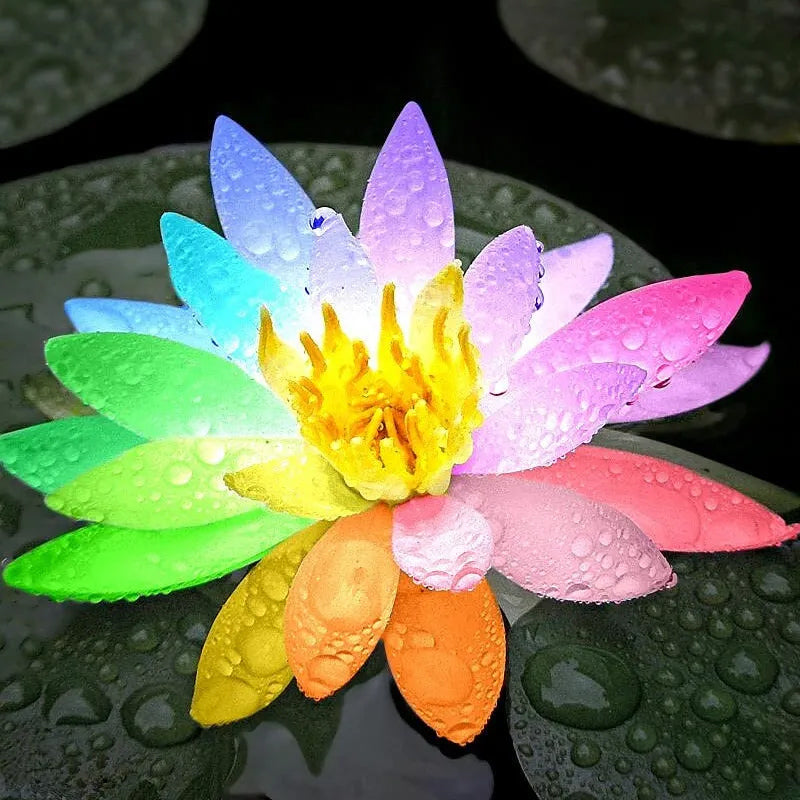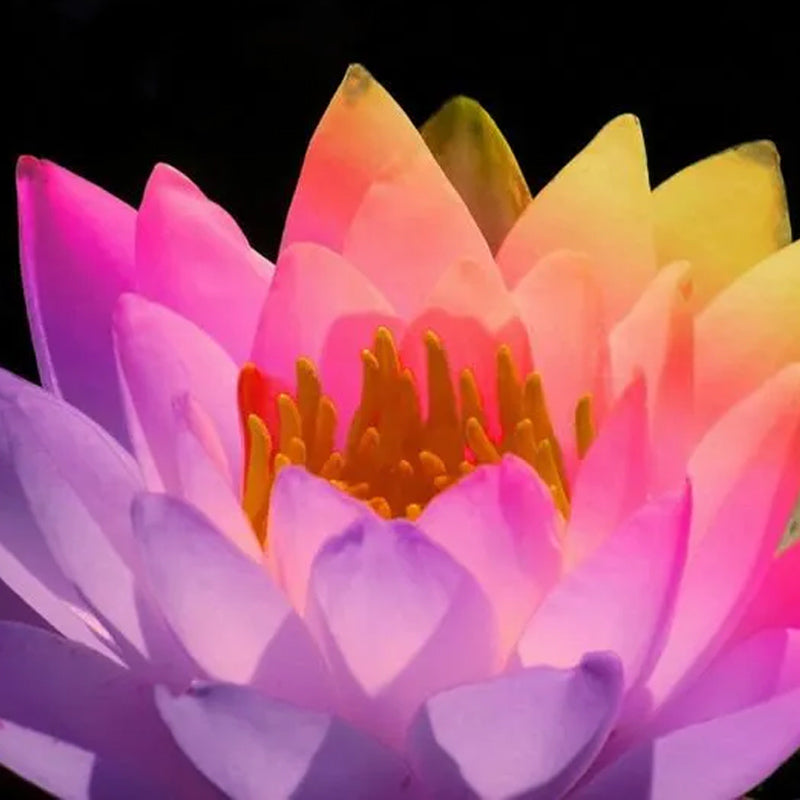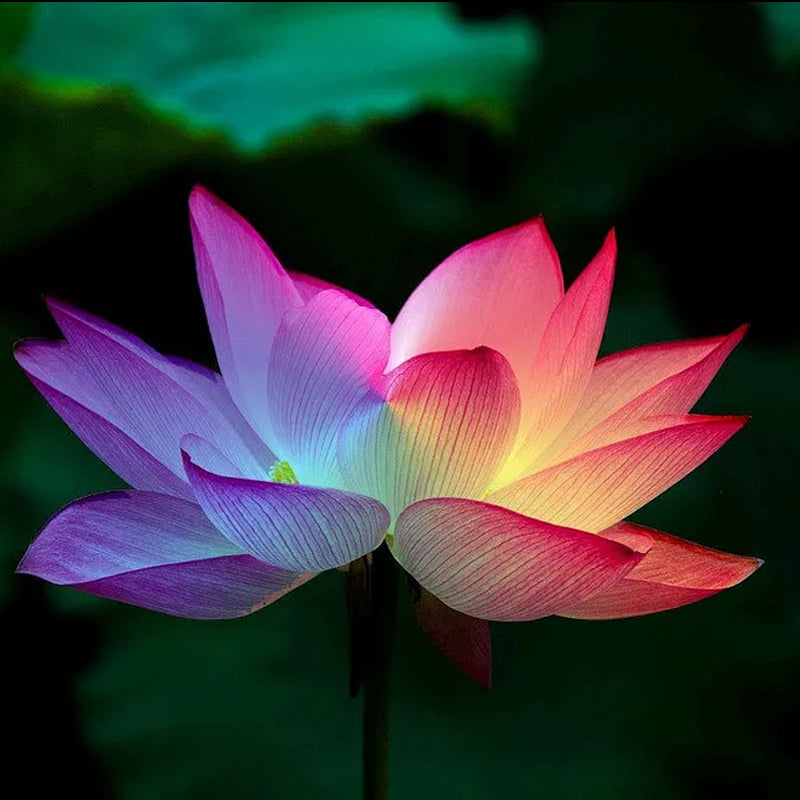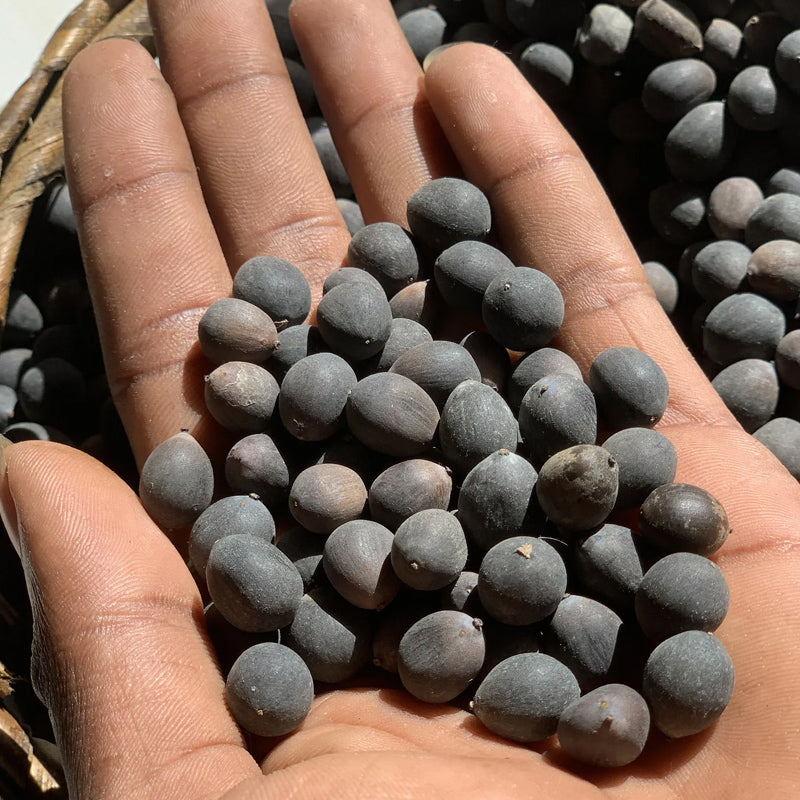Rare Rainbow Lotus Seeds Bowl Water Lily Hydroponic Plants Fast Growing
Rare Rainbow Lotus Seeds Bowl Water Lily Hydroponic Plants Fast Growing - 30 Seeds is backordered and will ship as soon as it is back in stock.
WHY CHOOSE US?
WHY CHOOSE US?
♥ Purely Natural, 100% NON-GMO Seeds.
♥ Superior Germination,Reliable Seeds for Your Garden.
♥ Ships within 1 to 2 business days.
♥ Quality assurance 30-Day Money-Back guarantee,Worry-Free !
♥ Payments Via PayPal or Credit Card.
RETURN POLICY
RETURN POLICY
Haiyiplants Return and Exchange Guarantee | 30-Day Worry-Free After-Sales Service, Quality You Can Trust
At Haiyiplants, we want every customer to feel confident when choosing their favorite seeds. Therefore, we are proud to introduce our 30-day worry-free return and exchange policy—providing transparent and thoughtful service to safeguard your gardening journey. Whether the seed variety does not meet your expectations or you encounter any quality issues, our team is dedicated to providing you with efficient solutions to ensure that your shopping experience is always worry-free.
Order Cancellation
You can cancel your order within 48 hours after placing it. Refunds will be returned to your original payment method, with processing times of 1-2 business days.
Return Policy: Convenient Process, Safe Refunds
We guarantee that all seeds are non-GMO varieties and provide reliable germination rate assurance. If you find that the packaging is damaged, the seeds are moldy, the variety does not match the description, or the promised germination rate is not achieved under the correct cultivation conditions, you can request a return within 30 days of receiving your order. After verification, we will issue a full refund.
Exchange Policy: Accurate Matching, Quick Replacement
If you receive seeds with the aforementioned quality issues or need to change the variety specifications, you can request an exchange within 30 days. We will prioritize matching you with the desired variety and quickly dispatch the new products to minimize your waiting time.
After-Sales Service Exceptions
Haiyiplants is not responsible for returns, exchanges, or seed failure due to the following circumstances: improper storage (such as high temperatures, humidity, or exposure to sunlight), cultivation environments that do not meet plant growth requirements, or sowing errors that are not related to the quality of the product itself, leading to seeds failing to germinate or poor growth; contamination or loss caused by human error after the seeds have been unsealed.
Note: For seeds that experience a decrease in germination rate due to slight improper storage, our team of professional horticulturists can provide free cultivation guidance. For more details, please contact our customer service.
Contact Us
If you have any questions about returns or exchanges or need assistance, please contact us through the following methods:
- Email: export@haiyiplants.com
- Service Hours: Replies within 24 hours, 7 days a week
At Haiyiplants, we uphold our dual quality commitment to non-GMO and germination rates, sincerely treating every gardening enthusiast. Our 30-day worry-free return and exchange policy is designed to allow you to shop with peace of mind and enjoy the fun of planting to harvesting, easily embracing the joy of lush greenery. Thank you for your trust and support!

Rare Rainbow Lotus Seeds Bowl Water Lily Hydroponic Plants Fast Growing - 30 Seeds is backordered and will ship as soon as it is back in stock.
Payment & Security
Payment methods
Your payment information is processed securely. We do not store credit card details nor have access to your credit card information.
Description
Description
This rare rainbow lotus seed can cultivate lotus flowers in various colors, and the petals show rich colors, including pink, purple, yellow and white, like a rainbow on the water. The lotus flower shape is elegant, and the flowers sparkle charmingly in the sun, adding a unique beauty to the waterscape. They are not only suitable for decoration of pools, fountains or waterscape gardens, but can also be planted as potted plants in balconies or courtyards, adding a tranquil and romantic atmosphere to the space, attracting bees and butterflies, and creating a natural ecological environment.
| Name | Rare Rainbow Lotus Seeds |
| Variety: | Rainbow Lotus |
| Colors: | Pink, purple, yellow, white, etc. |
| Maturity: | Approximately 90-120 days |
| Life Cycle: | Perennial |
| Plant Height: | 12-48 inches(depending on water depth) |
| Plant Spacing: | 24-36 inches |
| Hardiness zones: | 9-11 |
| Features: | Rich in color, adapted to aquatic environments |
| Uses: | Waterscape, garden decoration, potted plants |
























